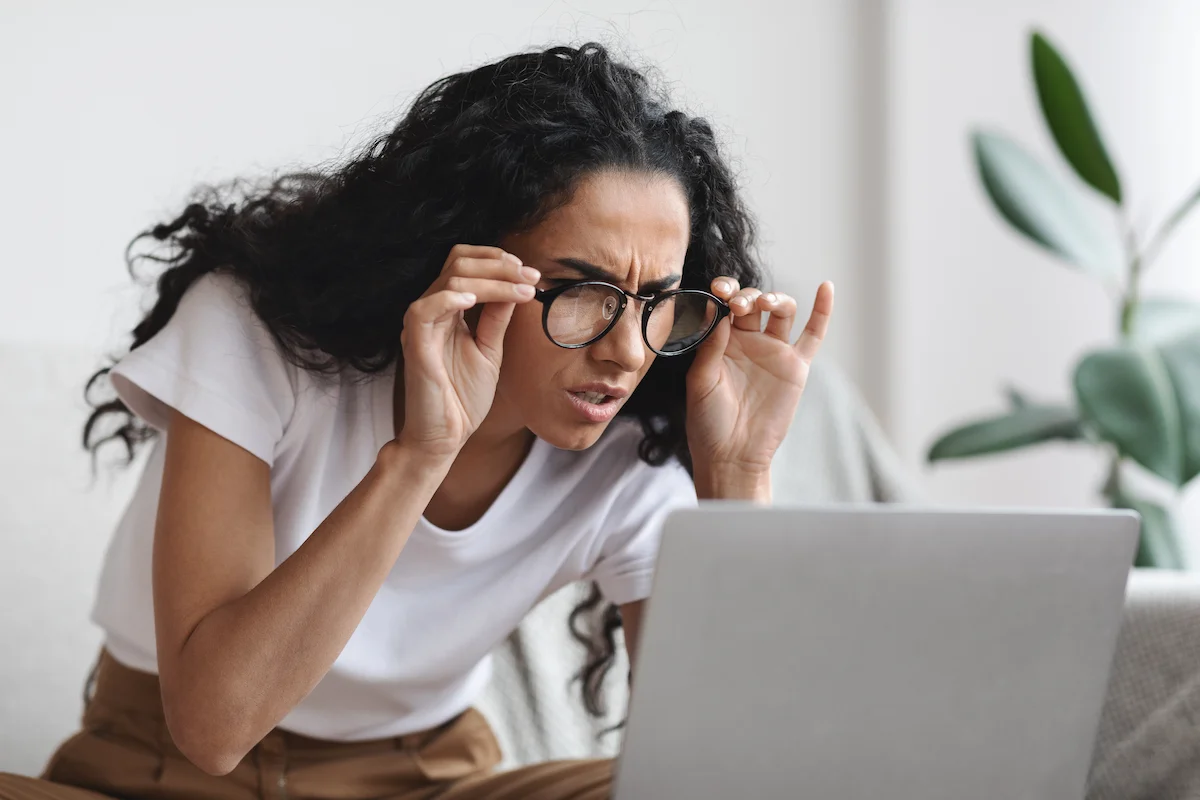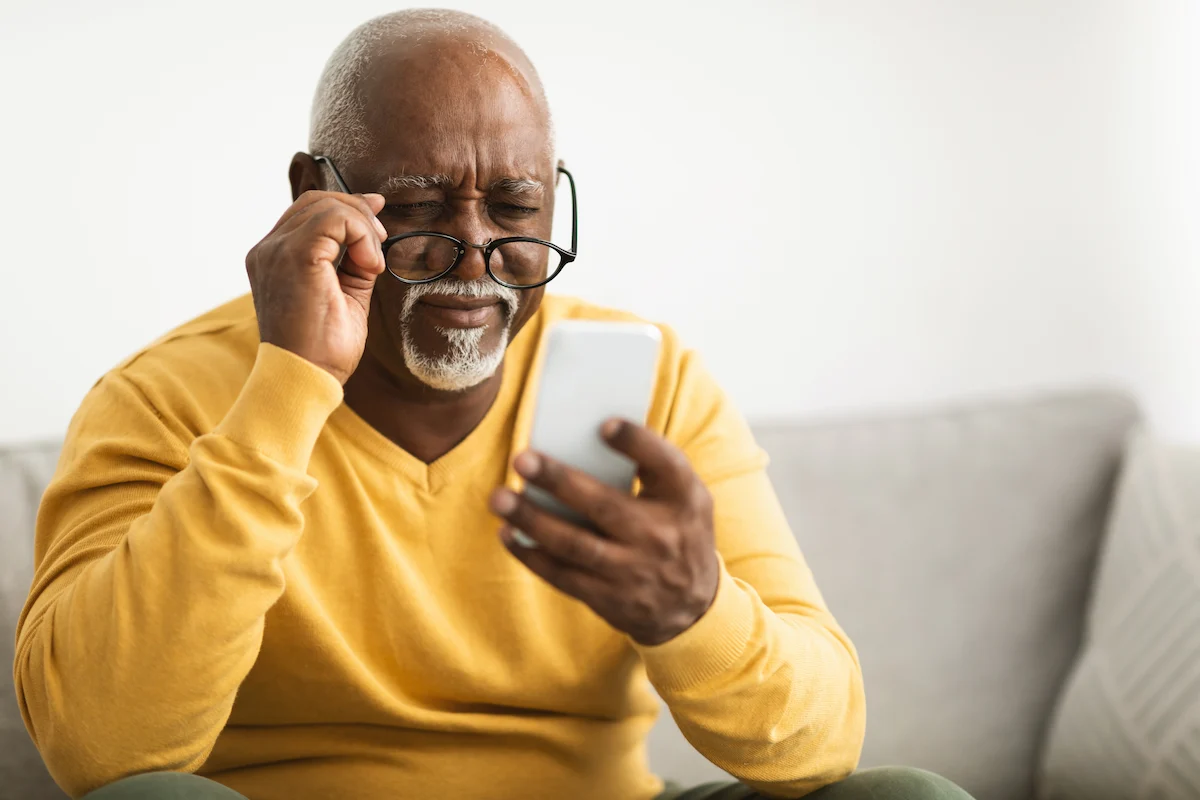Is Bad Eyesight Genetic? Understanding Vision and Eye Health

Vision plays a crucial role in our daily lives, allowing us to navigate the world around us and connect with others. But as we age, or sometimes even earlier in life, our eyesight can deteriorate, leading to concerns and questions like, “Is bad eyesight genetic?” or “Why is my eyesight getting worse?”
If you’re struggling with vision problems, this article will explore the various factors that can contribute to poor eyesight, including the role of genetics, and provide guidance on seeking appropriate care in Miami.
Is Bad Eyesight Genetic? The Role of Heredity
Yes, genetics can significantly influence your eyesight. Many eye conditions, such as:
- Myopia (nearsightedness): Difficulty seeing distant objects clearly.
- Hyperopia (farsightedness): Difficulty focusing on near objects.
- Astigmatism: Blurred vision due to an irregularly shaped cornea.
- Color blindness: Inability to distinguish certain colors.
These conditions often run in families, meaning if your parents or close relatives have them, you’re more likely to develop them as well.
Eyesight Getting Worse: Why Does it Happen?
Besides genetics, several factors can contribute to worsening eyesight:
- Aging: As we age, the lens of our eye loses flexibility, making it harder to focus on near objects (presbyopia). Age-related macular degeneration (AMD) and cataracts are also common causes of vision loss in older adults.
- Eye Strain: Prolonged screen time, reading in dim light, or other activities that strain your eyes can contribute to vision problems.
- Underlying Health Conditions: Diabetes, high blood pressure, and autoimmune diseases can affect eye health and lead to vision loss.
- Eye Injuries or Infections: Trauma to the eye or infections can damage the eye structures and impair vision.
What Causes Bad Eyesight? A Multitude of Factors
The causes of bad eyesight are diverse and often involve a combination of factors. It’s essential to have regular eye exams to identify any potential problems early on.

Why is My Eyesight Getting Worse Even with Glasses?
If your eyesight is deteriorating despite wearing glasses or contact lenses, it could indicate:
- Changes in your prescription: Your vision might have changed, requiring a new prescription for your glasses or contacts.
- Underlying eye condition: You might have developed an eye disease like glaucoma or cataracts, which can worsen vision even with corrective lenses.
- Other health problems: Uncontrolled diabetes or high blood pressure can damage blood vessels in the eyes and affect vision.
Primary Care Doctor and Eye Health
Your primary care doctor can play a vital role in monitoring your overall health, including your eye health. They can:
- Assess your risk factors for eye diseases.
- Recommend regular eye exams with an optometrist or ophthalmologist.
- Help manage underlying health conditions that can affect your vision.
- Provide referrals to specialists if needed.
Primary Care in Miami: Hiriart & Lopez MD
If you’re experiencing vision problems or have concerns about your eye health, schedule an appointment with Hiriart & Lopez MD in Miami. Our primary care physicians offer comprehensive health evaluations and can help you navigate your eye care needs. Call our office at (305) 274-8779 or visit us at 9950 SW 107th Ave STE 101, Miami, FL 33176.
Key Takeaways:
- Bad eyesight can be caused by genetic factors, aging, eye strain, underlying health conditions, and other factors.
- Regular eye exams are crucial for early detection and management of vision problems.
- If your eyesight is worsening, consult a primary care doctor or eye specialist in Miami.
- Don’t ignore changes in your vision. Seeking timely medical attention can help protect your eyesight and maintain your quality of life.
Remember, this article is intended for informational purposes only and should not be considered a substitute for professional medical advice. If you have any concerns about your 1 eyesight or overall health, consult a qualified healthcare professional.
FAQs: Is Bad Eyesight Genetic?
- If my parents wear glasses, does that mean I’ll need them too? While genetics play a role in eyesight, it’s not guaranteed that you’ll inherit your parents’ vision problems. However, having a family history of conditions like myopia or astigmatism increases your risk. Regular eye exams are crucial for early detection and correction.
- Why is my eyesight getting worse even though I wear glasses? Your eyesight can change over time, even with corrective lenses. It’s essential to have regular eye exams to update your prescription and rule out any underlying eye conditions that might be affecting your vision.
- Can I prevent my eyesight from getting worse? While you can’t always prevent age-related vision changes, adopting healthy habits can help protect your eye health. This includes:
- Regular eye exams
- Protecting your eyes from the sun with sunglasses
- Eating a balanced diet rich in antioxidants
- Managing chronic conditions like diabetes and high blood pressure
- Avoiding smoking
- What are some signs that I should see an eye doctor immediately? Seek urgent care if you experience sudden vision loss, double vision, eye pain, flashes of light, or any other concerning changes in your vision.
- How can I find a qualified eye doctor in Miami? Your primary care doctor in Miami can provide a referral to an optometrist or ophthalmologist. You can also search online for “eye doctor near me in Miami” or ask for recommendations from friends and family.
Contact Us
Hiriart & Lopez MD, LLC
9950 SW 107th Ave STE 101,
Miami, FL 33176
305-274-8779
Phone: (305) 274-8779
Fax: (305) 274-0646
OPENING HOURS
Monday 7:30 AM–4:30 PM
Tuesday 7:30 AM–4:30 PM
Wednesday 7:30 AM–4:30 PM
Thursday 7:30 AM–4:30 PM
Friday 7:30–11 AM
Saturday Closed
Sunday Closed
OFFICE LOCATION
Is Bad Eyesight Genetic? Understanding Vision and Eye Health

Vision plays a crucial role in our daily lives, allowing us to navigate the world around us and connect with others. But as we age, or sometimes even earlier in life, our eyesight can deteriorate, leading to concerns and questions like, “Is bad eyesight genetic?” or “Why is my eyesight getting worse?”
If you’re struggling with vision problems, this article will explore the various factors that can contribute to poor eyesight, including the role of genetics, and provide guidance on seeking appropriate care in Miami.
Is Bad Eyesight Genetic? The Role of Heredity
Yes, genetics can significantly influence your eyesight. Many eye conditions, such as:
- Myopia (nearsightedness): Difficulty seeing distant objects clearly.
- Hyperopia (farsightedness): Difficulty focusing on near objects.
- Astigmatism: Blurred vision due to an irregularly shaped cornea.
- Color blindness: Inability to distinguish certain colors.
These conditions often run in families, meaning if your parents or close relatives have them, you’re more likely to develop them as well.
Eyesight Getting Worse: Why Does it Happen?
Besides genetics, several factors can contribute to worsening eyesight:
- Aging: As we age, the lens of our eye loses flexibility, making it harder to focus on near objects (presbyopia). Age-related macular degeneration (AMD) and cataracts are also common causes of vision loss in older adults.
- Eye Strain: Prolonged screen time, reading in dim light, or other activities that strain your eyes can contribute to vision problems.
- Underlying Health Conditions: Diabetes, high blood pressure, and autoimmune diseases can affect eye health and lead to vision loss.
- Eye Injuries or Infections: Trauma to the eye or infections can damage the eye structures and impair vision.
What Causes Bad Eyesight? A Multitude of Factors
The causes of bad eyesight are diverse and often involve a combination of factors. It’s essential to have regular eye exams to identify any potential problems early on.

Why is My Eyesight Getting Worse Even with Glasses?
If your eyesight is deteriorating despite wearing glasses or contact lenses, it could indicate:
- Changes in your prescription: Your vision might have changed, requiring a new prescription for your glasses or contacts.
- Underlying eye condition: You might have developed an eye disease like glaucoma or cataracts, which can worsen vision even with corrective lenses.
- Other health problems: Uncontrolled diabetes or high blood pressure can damage blood vessels in the eyes and affect vision.
Primary Care Doctor and Eye Health
Your primary care doctor can play a vital role in monitoring your overall health, including your eye health. They can:
- Assess your risk factors for eye diseases.
- Recommend regular eye exams with an optometrist or ophthalmologist.
- Help manage underlying health conditions that can affect your vision.
- Provide referrals to specialists if needed.
Primary Care in Miami: Hiriart & Lopez MD
If you’re experiencing vision problems or have concerns about your eye health, schedule an appointment with Hiriart & Lopez MD in Miami. Our primary care physicians offer comprehensive health evaluations and can help you navigate your eye care needs. Call our office at (305) 274-8779 or visit us at 9950 SW 107th Ave STE 101, Miami, FL 33176.
Key Takeaways:
- Bad eyesight can be caused by genetic factors, aging, eye strain, underlying health conditions, and other factors.
- Regular eye exams are crucial for early detection and management of vision problems.
- If your eyesight is worsening, consult a primary care doctor or eye specialist in Miami.
- Don’t ignore changes in your vision. Seeking timely medical attention can help protect your eyesight and maintain your quality of life.
Remember, this article is intended for informational purposes only and should not be considered a substitute for professional medical advice. If you have any concerns about your 1 eyesight or overall health, consult a qualified healthcare professional.
FAQs: Is Bad Eyesight Genetic?
- If my parents wear glasses, does that mean I’ll need them too? While genetics play a role in eyesight, it’s not guaranteed that you’ll inherit your parents’ vision problems. However, having a family history of conditions like myopia or astigmatism increases your risk. Regular eye exams are crucial for early detection and correction.
- Why is my eyesight getting worse even though I wear glasses? Your eyesight can change over time, even with corrective lenses. It’s essential to have regular eye exams to update your prescription and rule out any underlying eye conditions that might be affecting your vision.
- Can I prevent my eyesight from getting worse? While you can’t always prevent age-related vision changes, adopting healthy habits can help protect your eye health. This includes:
- Regular eye exams
- Protecting your eyes from the sun with sunglasses
- Eating a balanced diet rich in antioxidants
- Managing chronic conditions like diabetes and high blood pressure
- Avoiding smoking
- What are some signs that I should see an eye doctor immediately? Seek urgent care if you experience sudden vision loss, double vision, eye pain, flashes of light, or any other concerning changes in your vision.
- How can I find a qualified eye doctor in Miami? Your primary care doctor in Miami can provide a referral to an optometrist or ophthalmologist. You can also search online for “eye doctor near me in Miami” or ask for recommendations from friends and family.
Contact Us
Hiriart & Lopez MD, LLC
9950 SW 107th Ave STE 101,
Miami, FL 33176
305-274-8779
Phone: (305) 274-8779
Fax: (305) 274-0646
OPENING HOURS
Monday 7:30 AM–4:30 PM
Tuesday 7:30 AM–4:30 PM
Wednesday 7:30 AM–4:30 PM
Thursday 7:30 AM–4:30 PM
Friday 7:30–11 AM
Saturday Closed
Sunday Closed

